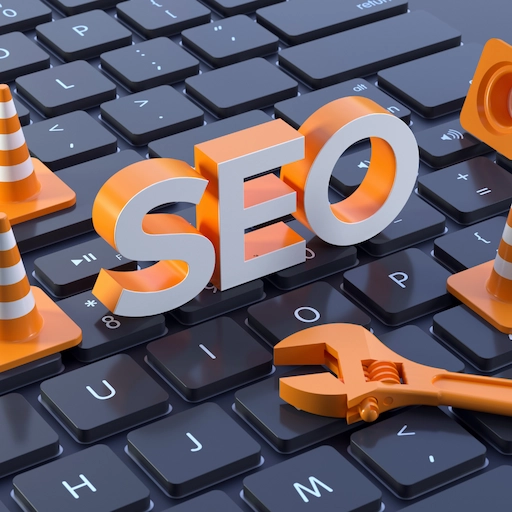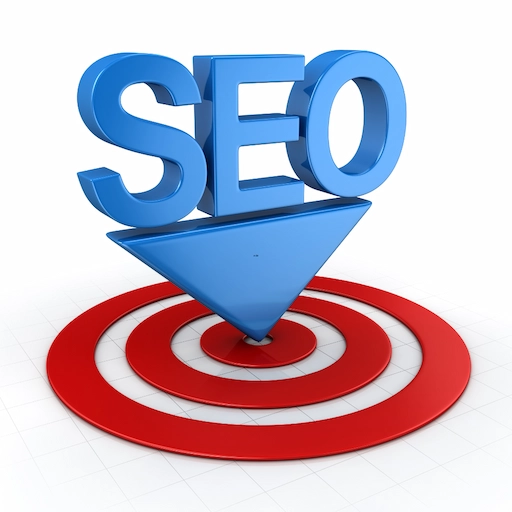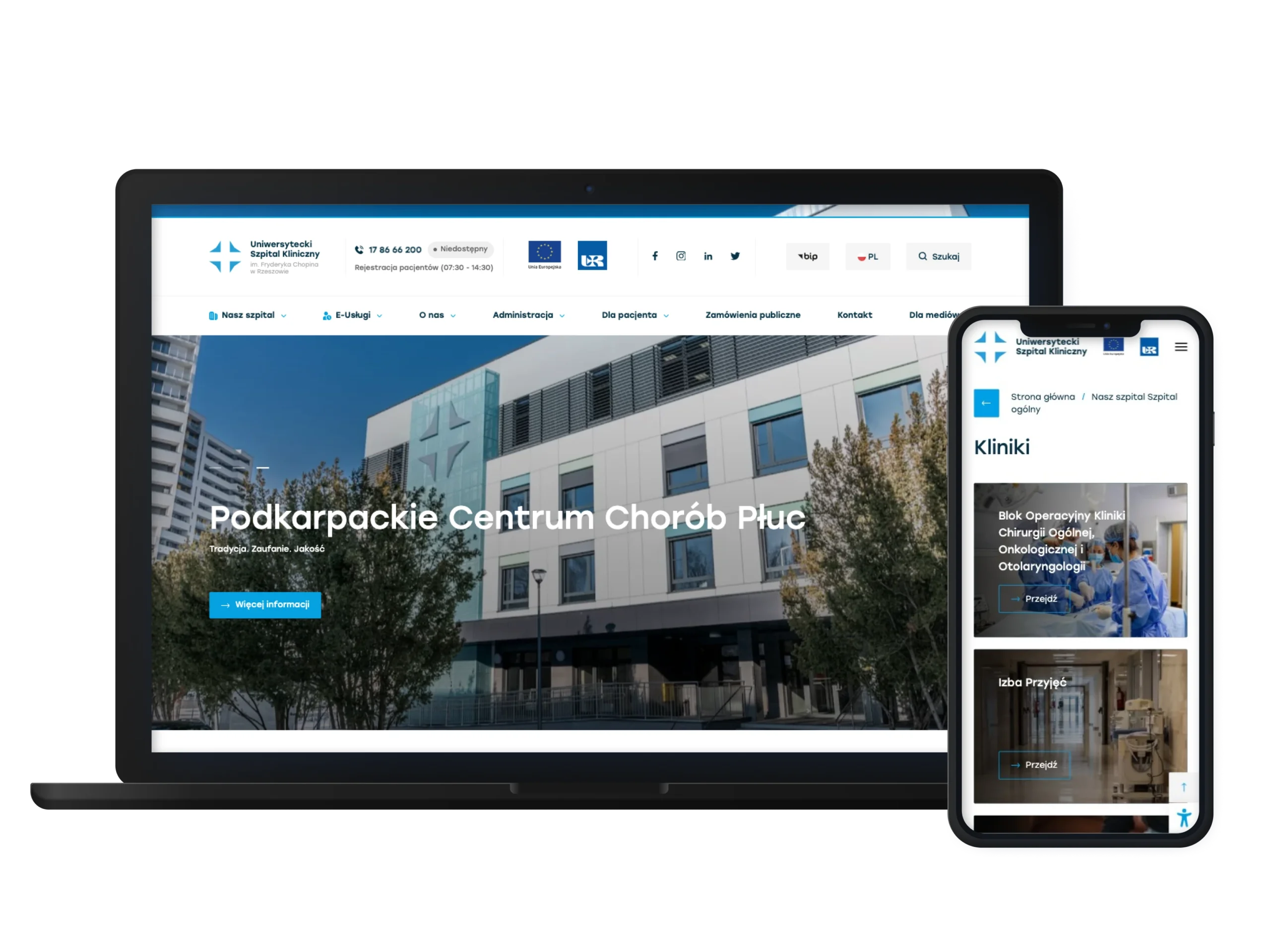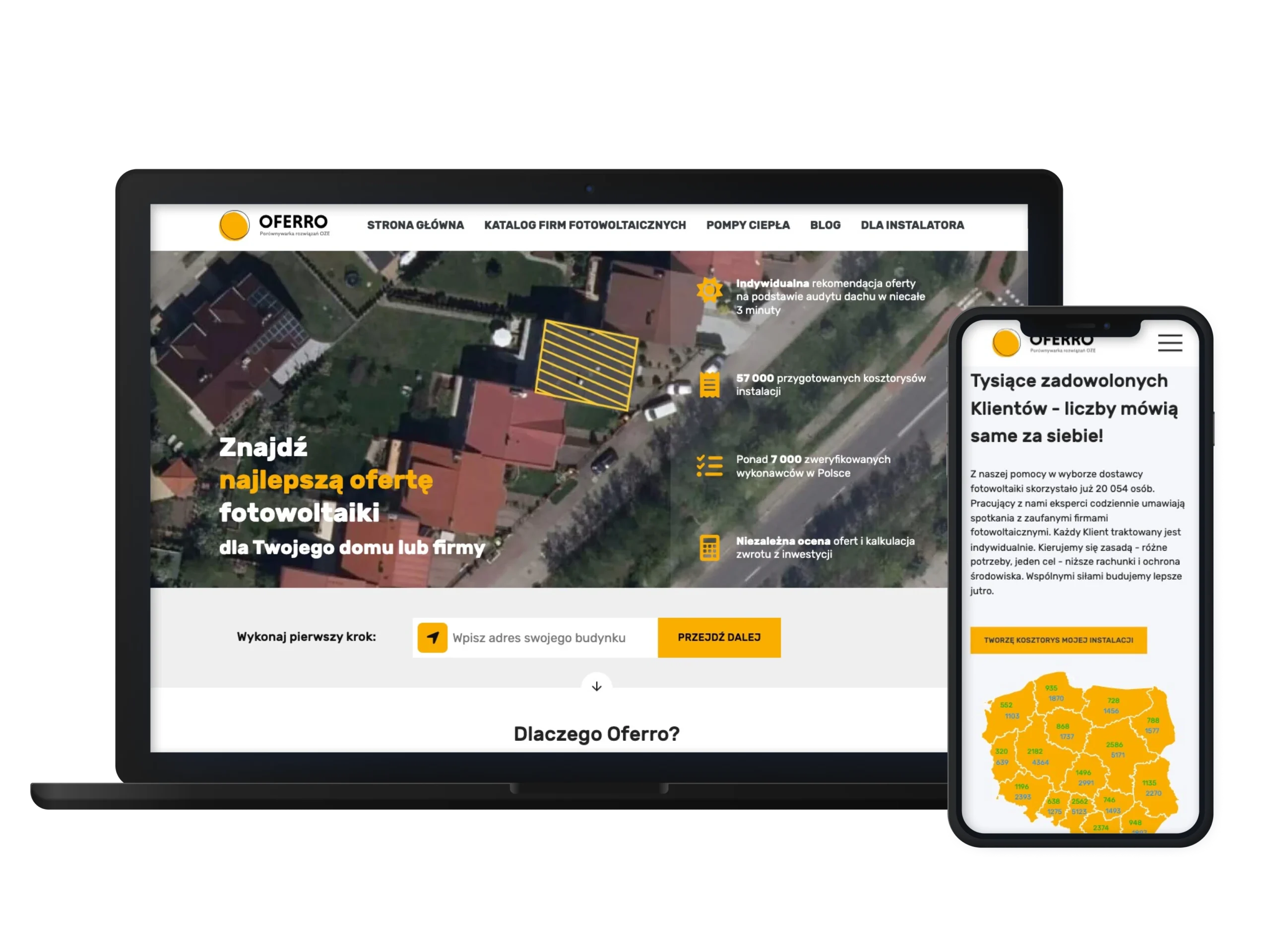Table of Contents

Search Engine Optimization
Search Engine Optimization Makes Your Business the Star Where Your Customers Are Searching - On Google's Front Pages!
Boost Your Online Presence with SEO
Maximize your website's potential with targeted Search Engine Optimization (SEO). Without SEO, your website is like a hidden gem, unseen by potential customers. By focusing on your site’s visibility, you not only enhance its design but turn it into a powerful tool for attracting new clients. SEO ensures your website ranks high on Google, converting searches into leads and visibility into growth.

SEO Campaign Planning
Defining Your SEO Goals
Successful SEO begins with setting clear, measurable goals. These objectives act as your roadmap, guiding you toward top rankings on Google. Clear goal setting also helps outline your SEO budget, ensuring that your strategy is both effective and cost-efficient.
Competitive SEO Analysis
Outsmart the Competition
Gain a competitive edge with an in-depth analysis of your rivals' SEO strategies. By uncovering their tactics, we can develop a winning approach that sets your business apart. Leverage these insights to boost your visibility and outperform your competitors in search rankings.


Keyword Strategy for SEO
Targeting the Right Audience
The art of selecting the right keywords is central to scripting your business's success story in search rankings. Tailor your keyword strategy to resonate with your target audience and align with your budget, ensuring your brand becomes the first choice for potential customers online.
Customized SEO Strategies
Designing Tailored to Your Business SEO Tactics
Every industry is different, and your SEO strategy should reflect that. We design a custom SEO approach that highlights your business's unique strengths, ensuring your brand captures the attention of your audience and turns interest into action.


Optimizing for SEO Excellence
Precision Tuning for Peak SEO Performance
Optimizing your website for SEO involves more than just keywords. We fine-tune over 150 technical factors to align your site with Google’s standards, ensuring it ranks high and performs at its best in search results.
Strengthening Your Authority with Link-Building
Cultivating High-Quality SEO Backlinks
Backlinks are a key factor in boosting your website’s authority. By building high-quality links from trusted sites, we enhance your site's credibility and push it higher in search rankings. Strong backlinks help your site gain the trust of both Google and your audience.


SEO Performance Monitoring
Tracking SEO Success
SEO is a dynamic process. We continuously monitor your site’s performance, analyzing traffic and keyword rankings to make adjustments as needed. This ensures your SEO strategy remains effective, helping you stay ahead in the ever-changing digital landscape.
SEO Reporting
SEO Insights and Achievements
Our detailed SEO reports give you a clear picture of your progress. These reports showcase keyword rankings, traffic improvements, and the overall success of your SEO campaign, helping you track your ROI and identify new opportunities for growth.


Local SEO: Dominating Your Market
Elevating Local Businesses with SEO
For businesses targeting a local audience, Local SEO is essential. We focus on optimizing your website to rank for local searches, helping you become a leader in your community and attract more customers from your area.
Questions & Answers You Might Ponder
How long will it take to see results from Search Engine Optimization?
The timeline for seeing tangible results from Search Engine Optimization (SEO) can vary significantly based on several factors, but it's important to understand that SEO is a long-term strategy rather than a quick fix. Generally, you might start to see initial results within 3 to 6 months, but it can take 6 months to a year or even longer to achieve substantial outcomes. Here's why:
1. Website and Current SEO Status: If you're starting with a new website or one with little previous Search Engine Optimization work, it will take longer to build authority and rankings. Conversely, an established website with some SEO foundation might see results faster.
2. Competitiveness of the Industry: In highly competitive industries, it takes more time to climb up the ranks. More competitors typically mean more effort is required to outrank them.
3. Quality of SEO Work: The effectiveness of your Search Engine Optimization strategy, including keyword research, content quality, and link-building efforts, significantly impacts how quickly you see results. High-quality, consistent SEO efforts are likely to yield faster and more durable results.
4. Algorithm Updates and Industry Changes: Search engines frequently update their algorithms. These updates can affect your site's visibility and require time to adapt and recover rankings.
5. Continuous Effort and Patience: SEO is not a set-and-forget strategy. Ongoing optimization, content creation, and adaptation to search trends are necessary to maintain and improve rankings.
6. Monitoring and Adjusting Strategy: Regular analysis of SEO data and adjusting the strategy based on these insights are essential. It takes time to understand what works best for your specific niche and audience.
In summary, while you may see initial improvements relatively quickly, SEO should be viewed as a continuous, evolving process. Patience, along with consistent and quality SEO efforts, are key to long-term success. The initial investment in time and resources may seem significant, but the enduring benefits of a well-optimized website are well worth it.
How do you measure the success of your Search Engine Optimization efforts?
Measuring the success of SEO efforts is multi-dimensional and involves several key performance indicators (KPIs). Here’s how we approach it:
1. Organic Traffic: The most direct measure of Search Engine Optimization success is an increase in organic traffic. We track the number of visitors coming to your site from search engines, focusing on a sustainable upward trend.
2. Search Engine Rankings: Improvement in the rankings for targeted keywords is a clear indicator of successful Search Engine Optimization. We monitor where your pages rank for specific terms, aiming for continuous improvement, especially getting to the first page of search results.
3. Click-Through Rate (CTR): This metric shows the percentage of users who click on your site after seeing your listing in search results. A higher CTR suggests effective title tags and meta descriptions, optimized for both search engines and user appeal.
4. Bounce Rate and User Engagement: We analyze user behavior on your site, such as bounce rate, average session duration, and pages per session. Improvements in these areas often indicate more relevant and engaging content.
5. Conversion Rate: Ultimately, the goal of Search Engine Optimization is not just to attract traffic, but to drive actions – be it sales, sign-ups, or inquiries. We track how many visitors complete these desired actions.
6. Backlink Profile: The quality and quantity of backlinks to your site reflect its authority. We assess your backlink profile for growth and quality, as this impacts your search engine rankings.
7. Keyword Rankings: Ranking for a broader set of relevant keywords, especially long-tail keywords, can indicate successful content expansion and improved visibility.
8. Local SEO Metrics: For local businesses, metrics like Google My Business listing views and local pack rankings are critical.
Our company provides regular reports that not only include these metrics but also give context and analysis to understand what they mean for your business and how we can further optimize our strategy.
Can you guarantee a #1 ranking on Google?
No ethical company can guarantee a #1 ranking on Google. Search engines' algorithms are complex and continuously evolving, and there are many factors outside our control. Here's what we do guarantee:
1. Best Practices and Transparency: We adhere to Google's guidelines and Search Engine Optimization best practices, focusing on creating high-quality, relevant content and building a strong, natural backlink profile.
2. Data-Driven Strategies: We base our strategies on data and industry insights, continuously adjusting our approach based on performance analytics.
3. Competitive Analysis: We conduct thorough research on your competitors, understanding their strengths and weaknesses, to identify opportunities for your site.
4. Focus on User Experience: We optimize not just for search engines, but also for users. Enhancing user experience on your site can lead to better engagement and conversions, which search engines favor.
5. Customized SEO Approach: Every business is unique, and so is our Search Engine Optimization strategy for your website. We consider your industry, target audience, and business goals.
6. Ongoing Optimization: SEO is not a one-time task. We continuously monitor and optimize your website to adapt to changes in search algorithms and industry trends.
7. Clear Communication and Reporting: We maintain transparency about our methods and provide regular, detailed reports on your SEO campaign's performance.
While we aim to significantly improve your rankings and visibility on search engines, an outright guarantee of the top position is not feasible or ethical.
What strategies do you use for Search Engine Optimization?
In our approach to Search Engine Optimization, we employ a variety of strategies tailored to your specific business needs and goals. Initially, we conduct a comprehensive analysis of your website and industry, identifying key areas for improvement. This involves a deep dive into keyword research to uncover terms that align with your audience's search behavior and your business offerings.
Content creation and optimization are at the heart of our strategy. We focus on producing high-quality, relevant content that engages your audience and adheres to Search Engine Optimization best practices. This includes optimizing existing web pages and creating new content that drives organic traffic and improves your site's authority.
On-site SEO tactics like optimizing meta tags, headers, and images are crucial. We ensure your website structure and code are streamlined for optimal crawling and indexing by search engines.
Off-site SEO, primarily through building high-quality backlinks, also plays a vital role. We work on enhancing your website’s credibility and authority by acquiring backlinks from reputable and relevant websites.
Moreover, technical SEO is a key aspect of our strategy. We address factors like site speed, mobile responsiveness, and secure browsing (HTTPS), which are critical for both user experience and search engine rankings.
Regular monitoring and adjusting of these strategies are essential. SEO is an evolving field, and we stay abreast of the latest trends and algorithm updates to continually refine our approach.
How can SEO impact my business’s bottom line?
SEO has a significant impact on your business's bottom line. By increasing your website's visibility in search engine results, SEO drives more organic traffic, which often translates to increased sales and revenue. When potential customers can find your website easily through a search engine, it enhances the chances of them engaging with your content, services, or products.
An effective Search Engine Optimization strategy can also improve brand awareness and credibility. Ranking high in search results is perceived by users as a sign of trustworthiness and authority in your industry. This can lead to higher conversion rates as visitors are more likely to trust and buy from a website that appears at the top of their search results.
Furthermore, Search Engine Optimization helps in targeting specific audience segments. By using targeted keywords and creating content that resonates with your audience, you attract more qualified traffic. This targeted approach means that the visitors coming to your site are more likely to be interested in your offerings, leading to better conversion rates and customer retention.
Another critical aspect is the cost-effectiveness of Search Engine Optimization. Unlike paid advertising where you pay for every click, traffic from organic search results is essentially free. Once your website ranks higher, it continues to attract visitors without ongoing costs, making it a sustainable long-term strategy.
What is the difference between on-page and off-page SEO?
On-page and off-page SEO are two fundamental components of any comprehensive Search Engine Optimization strategy, each addressing different aspects of website optimization.
On-page SEO involves optimizing elements within your website that you can control directly. This includes content elements like the quality and relevance of the text, the use of keywords, headers, and meta tags (such as title tags and meta descriptions). It also encompasses the technical aspects of your site, such as site speed, mobile-friendliness, navigational structure, URL structure, and internal linking. The goal of on-page SEO is to make your website more user-friendly and accessible to search engines.
Off-page SEO, on the other hand, refers to actions taken outside of your website to impact your rankings within search engine results pages. This primarily includes building backlinks from other websites. High-quality backlinks from reputable sites signal to search engines that your site is valuable and authoritative, which can significantly boost your rankings. Off-page SEO can also include other tactics like social media marketing, guest blogging, and influencer marketing, all of which can increase your site's visibility and reputation.
Both on-page and off-page SEO are crucial for a successful search engine strategy. They complement each other and should be integrated seamlessly for the best results. While on-page SEO ensures your site is optimized and appealing to search engines and users, off-page SEO builds your website’s authority and helps to increase its visibility and ranking in search results.
How can I improve my website’s local SEO to target customers in my area?
Improving your website's local SEO is essential if your business targets customers in a specific geographic area. Local Search Engine Optimization helps you appear in local search results, which are increasingly personalized and tailored to each user's location. Here’s how you can optimize for local SEO:
1. Google My Business Optimization: The first step is to claim and optimize your Google My Business listing. This free listing allows you to appear in local search results and Google Maps. Ensure that your business name, address, phone number, and operational hours are accurate. Regularly update your listing with photos, updates, and respond to reviews.
2. Localized Content and Keywords: Incorporate location-based keywords into your website content. This includes city or region names where you operate. Create content that speaks to local customers, like blog posts about local events or issues relevant to your business sector in that area.
3. Mobile Optimization: With most local searches performed on mobile devices, your website must be mobile-friendly. This includes having a responsive design, fast loading times, and easy-to-use navigation on smaller screens.
4. Local Backlinks: Gaining backlinks from local businesses, directories, and organizations can significantly boost your local Search Engine Optimization. It signals search engines about your involvement and relevance in the local community.
5. Manage Online Reviews: Encourage your customers to leave reviews on your Google My Business and other relevant platforms. Respond to these reviews, both positive and negative, in a constructive and polite manner.
6. Local Business Directories: List your business in local directories and ensure that your business information is consistent across these platforms. Inconsistencies in name, address, and phone number can negatively affect your local Search Engine Optimization.
7. Schema Markup for Local SEO: Use schema markup to tell search engines specific information about your local business, like your business type, operating hours, location, etc.
By focusing on these aspects, you can enhance your visibility for local searches, making it easier for nearby customers to find and choose your business. Remember, local SEO is an ongoing process, and keeping up with these practices is key to maintaining and improving your local search presence.
Do you want to become a leader in your industry?
Don't wait, take action today! Reach out to SEO professionals to define your campaign goals, analyze your competition, and develop a personalized strategy that will catapult your business to the top of Google. The time to act is now. Invest in SEO and watch your business become the star where your customers are searching—on the front pages of Google!









